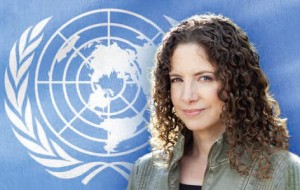Dr Karima Evan Bennoune

Mainstreaming a Human Rights Approach to Cultural Heritage
Abstract
Great advances have been made in developing and utilizing a human rights approach to cultural heritage and its destruction in recent years. Mainstreaming this approach remains an outstanding challenge, with governments and other stakeholders sometimes conveniently setting it aside. As we mark the tenth anniversary of the mandate of the UN Special Rapporteur in the field of cultural rights in March 2019, it is a good opportunity to assess progress made in this regard, and consider strategies for advancing the human rights to access and enjoy cultural heritage.
Biography
Karima Bennoune is a Professor of Law and Martin Luther King, Jr. Hall Research Scholar at the University of California, Davis School of Law in the United States. Since 2015 she has also served as the United Nations Special Rapporteur in the field of cultural rights, and in that capacity was appointed by the International Criminal Court as an expert in the case of Prosecutor v. Ahmad Al Faqi Al Mahdi, the first ever stand alone international prosecution for the destruction of cultural heritage. As Special Rapporteur, she has prepared two 2016 reports dedicated to framing the destruction of cultural heritage as a human rights issue, one for the Human Rights Council and one for the General Assembly. She has also carried out numerous related field missions, including to Serbia and Kosovo, Cyprus and Mali. Her most recent report to mark the 10th anniversary of the cultural rights mandate was recently presented to the Human Rights Council.
She is a member of the Board of Editors of the American Journal of International Law, and a former legal advisor for Amnesty International who has worked in the field of human rights around the world for more than two decades. Her 2013 book Your Fatwa Does Not Apply Here: Untold Stories from the Fight Against Muslim Fundamentalism, a book about people of Muslim heritage working against extremism, won the Dayton Literary Peace Prize. You can follow her on Twitter handle @UNSRCulture.



